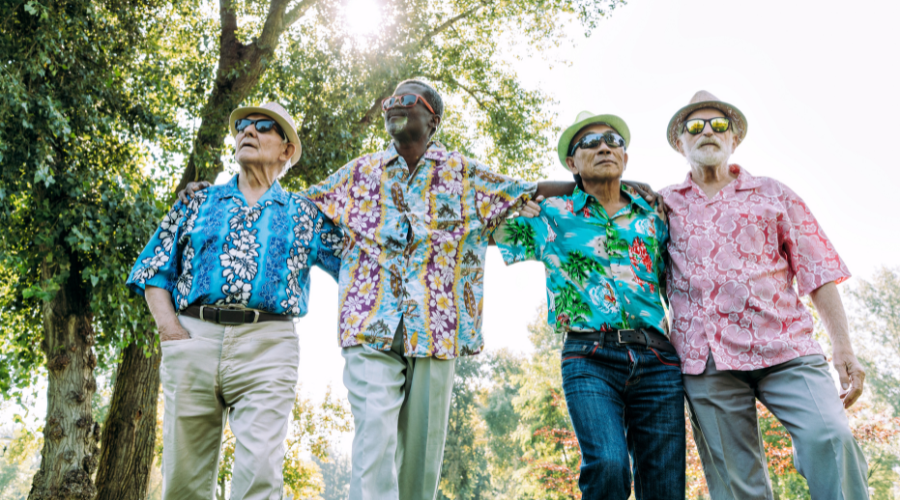By Joyce Wayne
Older women in Canada are not doing as well as they should be. Many find themselves living in poverty, forced to soldier on in inadequate housing, without the resources and support to live a safe and enjoyable life. The Toronto Star’s Moira Welsh reports: “Retirement income — including public and private pensions — for Canadian women over age 65 is nearly 22 percent lower than the men in their demographic, according to a 2021 report by the Organisation for Economic Co-operation and Development.”
A Statistics Canada measure of living situations for Canadians 65 and older found that 32 percent of women live alone, while for men, it’s 18.7 percent. After age 75, the disparity grows, with 41 percent of women and 20 percent of men living alone.
Dr. Samir Sinha, Director of Geriatrics at Sinai Health and University Health Network, says that the number of older women living in poverty shows the need for new research on innovative housing, such as co-operatives, co-owning or sharing. “As women age, they’re more likely to age in poverty with basic issues of access to affordable housing, so we need to research and understand the optimal models of housing that could allow more older women to age in the right place,” says Sinha, who for years has been the leading authority on solutions for aging with dignity in Canada. “Aging is complex and unless we look at it in a comprehensive way, we’re going to miss key insights,” says Dr. Sinha.
Yet, the question is, how do we develop and implement housing solutions for older Canadians when the cost of housing, be it ownership or renting, is so daunting? First, if you already own a home, including one with a mortgage, the best solution is to remain in that home. Rather than downsizing or renting, the response is to consider innovative solutions to make your finances work. Reverse mortgages, where you borrow a percentage of the value of your home, is an advantage from which most homeowners over the age of 55 can benefit.
Reverse Mortgages to age in place
I’ve been writing about HomeEquity Bank’s CHIP Reverse Mortgage for nearly a decade, and during that time, the perception of reverse mortgages has changed. It’s no longer considered as the last resolution. Today, a reverse mortgage is a well-regarded and savvy financial strategy that allows Canadian homeowners 55 and better to continue living in their homes that they love. With a CHIP Reverse Mortgage, no monthly mortgage payments are required and you receive funds in tax-free cash, meaning it will not affect your government pensions like the Old Age Security and Guaranteed Income Supplement.
This is how a CHIP Reverse Mortgage works: Canadians 55+ can borrow up to 55 percent of the value of their home, and receive that amount either in a lump-sum, or receive funds as monthly or quarterly installments.
Renting as an option
If you live in your home and it’s your primary residence, it’s still possible to rent out and share space in your home as long as you keep up on your property taxes and maintain your home in good condition.
Some choose to rent to students if there is a university or college campus nearby. Another solution is to talk to friends about future housing possibilities. It’s best not to leave these discussions to the last moment or decide what to do during a crisis. Be proactive. A female friend and I don’t hesitate to make time to talk about living arrangements if our partners should pre-decease us. As young adults, we lived in co-operatives where rent, utilities and groceries were divided evenly. Sharing makes sense for older adults not only on a financial level, but on a social level. Few people wish to live in isolation as they age, and having housemates to share meals and daily experiences with could be a welcome alternative to loneliness.
Older Canadians require deep thinking by housing policy experts who can provide the groundwork to create incentives for aging Canadians to live together and share expenses while enjoying each other’s company. I suspect healthcare costs would decrease, including emergency ward visits. “Poverty has a very negative impact on health, and women in particular are more likely to experience it,” says Dr. Paula Rochon, a geriatrician, senior scientist at Women’s College Research Institute and chair of the Institute of Aging advisory board. “People don’t often think about the implications, but it’s very, very important. We have to talk about it.”
Learn more about how the CHIP Reverse Mortgage works or call 1-866-758-2447 toll-free to find out how the CHIP Reverse Mortgage can help you live retirement on your terms.































